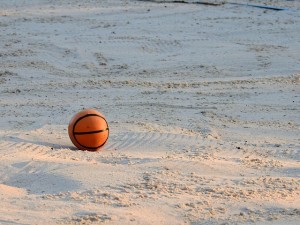 The waters of Lake Ontario keep rising, creating havoc for Rochester-area residents, businesses, and would-be beach-goers. Flooding has gotten so bad that Durand-Eastman beach is now indefinitely closed until the waters recede, and the city and state are scrambling to find options for relief.
The waters of Lake Ontario keep rising, creating havoc for Rochester-area residents, businesses, and would-be beach-goers. Flooding has gotten so bad that Durand-Eastman beach is now indefinitely closed until the waters recede, and the city and state are scrambling to find options for relief.
A popular swimming spot, Durand-Eastman was originally scheduled to open for the summer season on June 14. But the unusually high water levels have completely swallowed up the beach and torn away the sand. Nearly 25 feet of shoreline beach is currently underwater. New York State Code says that, for swimming areas to open, there must be 35 square-feet of land per bather available.
Part of Ontario Beach Park is also underwater, and businesses and homes situated along the lake are struggling to find solutions for the flooding. The International Lake Ontario-St. Lawrence River Board, a collaboration between the U.S. and Canada, made the decision to keep outflows steady for a short period to try to ease the high water levels. But that may not be a long-term option, as it could worsen the downstream impact or effect shipping interests while giving relief to those on the shoreline.
Now, New York Governor Andrew Cuomo is diving in, saying that temporary barrier systems — which use water-filled dams in lieu of sandbags — will be deployed in Greece and Sodus Point, both of which have experienced significant burdens due to flooding. Cuomo also noted that $1 million in state funding will be used towards wastewater treatment system repairs. Over 75% of the U.S. population is served by centralized wastewater collection and treatment systems, but the wastewater treatment infrastructure in these communities needs repairs and upgrades. This funding comes in addition to the previously announced $7 million in state aid for residents of the Lake Ontario and St. Lawrence River areas who have been impacted by the colossal amounts of rainfall.
Cuomo even went so far as to criticize the International Joint Commission, which directs the actions of the River Board. During his visit to the Rochester area, he slammed the panel, saying they “pulled the trigger too late” on increasing the flow of water from the lake into the St. Lawrence River and that the IJC “blew it.”
Local residents no doubt hope that the state funding will go a long way in keeping their heads — and their homes and businesses — above water.



No Comment